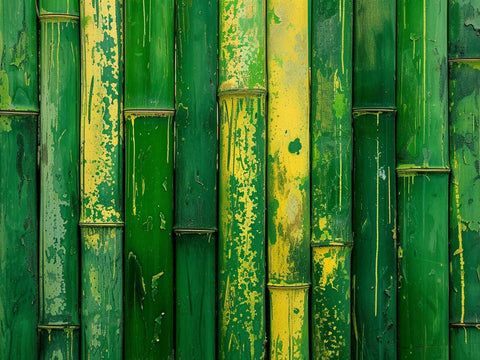How sustainable is bamboo?

More than just a panda’s favourite snack, this wonderful plant is fast taking over the world of homewares, furniture and even construction.
But is it as sustainable as we think it is? Here we discuss all things bamboo and whether we should give it such a lofty position in a sustainable future.
What is bamboo?
Bamboo is a type of grass that is primarily grown in Asia and parts of South America. It has increased in popularity amongst the eco-friendly family thanks to its sustainable properties.
There are several different varieties of bamboo, but the majority of what we see as consumers is grown in China and exported around the world.

What makes bamboo a fabulous, sustainable material?
There are plenty of reasons why fans of bamboo think that it is one of the top plants for sustainable living. Here we look at some these:
Fast growing
Bamboo grows rapidly, like super-fast. At a rate of 1 metre a day or 4 centimetres an hour, this grass can reach its adult size in just a few weeks.
However, it can take up to 10 years for new bamboo to take hold in the ground and start sprouting. But once it has, it is self-regenerating making it a total dream for farmers.
Pest resistant
The waxy exterior of bamboo provides natural protection from pests. This means that bamboo requires no chemicals or pesticides to help it grow.
It will grow perfectly all on its own and none of those nasty chemicals end up polluting our soils and harming wildlife.
Strong
Bamboo has been tested and found to be at least as strong as its hardwood counterparts. It is also comparable to steel!
This strength, combined with its low weight, make it an excellent substitute for traditional woods in the construction industry.
Flexible
When wet, bamboo can be easily manipulated into many shapes. Once dry, it will hold that shape indefinitely whilst retaining its strength and durability.
Needs little water
When compared to some of its alternatives, such as oak and cotton, bamboo requires very little water. Another reason that it makes a breeze for farmers.
Absorbs high levels of CO2
When you compare bamboo to other types of plants and grasses, it consumes up to 5 times more carbon dioxide. Growing this plant not only provides a sustainable material but also helps with the climate change problem.
Creates more oxygen
In case it hasn’t done enough already, bamboo also contributes more oxygen to the atmosphere than some of its similar leafy friends. Nearly 35% more!

When are bamboo products sustainable?
There are lots of fabulous uses of bamboo that make it a truly sustainable material. Thanks to the fibres inside, it is strong, lightweight and extremely durable.
These qualities lend bamboo to a variety of uses and provide solutions to less eco-friendly products that are better than the originals.
Bamboo is considered sustainable when it still looks like bamboo. Some great examples include:
- Bamboo cutlery sets (click here)
- Coffee and other drinks cups
- Bamboo utensils (click here)
- Scaffolding
- Flooring
- Furniture
- And even roofing.
It is a wonderfully diverse material that manufacturers have been able to use creatively to produce items that are needed in an ever more desperate world.
Check our range of sustainable products today by clicking here.

When is bamboo not sustainable?
Unfortunately, bamboo cannot fix all our problems. There is one area of bamboo usage that is far from sustainable and ideally should be avoided.
Textiles
We would love for bamboo to be used in textiles whilst retaining all the wonderful properties that make it eco-friendly.
Alas, using bamboo in textile production requires the use of some seriously toxic chemicals. Those strong fibres need breaking down to turn it into something soft and lovely.
Many companies claim that they can minimise the damage that these chemicals cause but it is hard to say whether this is possible. Until a less toxic process can be found, it is best to leave bamboo textiles alone for now.
We love bamboo
With so many sustainable uses of bamboo, we love this wonderful grass. If you love it too, why not grab yourself a bamboo cutlery set or even a bamboo toothbrush? You’ll be able to walk around with confidence, knowing that you’ve made an excellent sustainable choice.
We've got you covered!
Check our range of sustainable products today by clicking here.
Additionally you can discover now our signature Bamboo Cutlery Set and how it can improve your life!
What are your opinion about bamboo & bamboo biodegradable products? Any feedbacks? Any others tips to share? Share a comment below 😉
Start Your Zero-Waste Journey NOW
Get 10% Off On Your Order With the Code "ZEROWASTE10" Today



Leave a comment